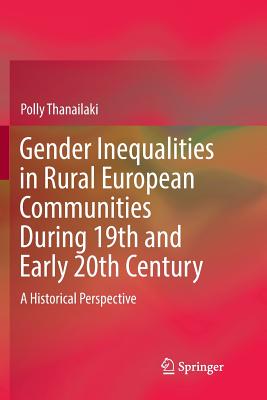This book aims to reconstruct the activities of enterprises and individuals over two decades in one developing country (Hungary), within and across four politico-economic domains (agriculture, infrastructure/construction, commerce, and manufacturing), from the initial Stalinist obsession with heavy industry through later reforms paying greater attention to profitable farming and the provision of abundant consumer goods. It provides hundreds of grounded, granular stories for reflection, as reported by actors and direct observers, ranging from innovation and improvisation to obstruction, failure, and fraud. Further, it offers an otherwise-unobtainable close encounter with another world, familiar in some respects while amazingly peculiar in others.The social history of enterprise and work in postwar Central European nations "building socialism" has long been underdeveloped. Through extensive macro-level research on planning and policy in Hungary, Poland, Czechoslovakia, and other Bloc countries, a grand narrative has been framed: reconstruction and breakneck industrialization under Soviet tutelage; then eventual mismanagement, stagnation and crisis, leading to collapse. This book seeks to explore what socialism actually looked like to those sustaining (or enduring} it as they faced forward into an unknowable future, to assess how and where it did (or didn't) work, and to recount how ordinary people responded to its opportunities and constraints.
This study will appeal to readers interested in a understanding how businesses worked day-to-day in a planned economy, how enterprise practices and technological strategies shifted during the first postwar generation, how novice managers and technicians emerged during rapid industrialization, how peasants learned to farm cooperatively, how organizations improvised and adapted, how political purity and practical expertise contended for control, and how the controversies and convulsions of the postwar decadesshaped a deeply flawed project to "build socialism."
本書旨在重建一個發展中國家(匈牙利)在過去二十年中,企業和個體在四個政治經濟領域(農業、基礎建設/建築、商業和製造業)內部及跨領域的活動,從最初斯大林主義對重工業的痴迷,到後來的改革更加關注盈利農業和豐富消費品的供應。它提供了數百個具體且細緻的故事供反思,這些故事由行動者和直接觀察者報導,涵蓋了從創新和即興發揮到阻礙、失敗和詐騙的各種情況。此外,它還提供了一個無法獲得的與另一個世界的近距離接觸,某些方面熟悉而在其他方面卻驚人地奇特。
在戰後中歐國家「建設社會主義」的企業和工作社會歷史長期以來發展不足。通過對匈牙利、波蘭、捷克斯洛伐克及其他社會主義國家的規劃和政策進行廣泛的宏觀研究,形成了一個宏大的敘事:在蘇聯的指導下進行重建和快速工業化;隨後是最終的管理不善、停滯和危機,導致崩潰。本書旨在探索社會主義對於那些維持(或忍受)它的人來說實際上是什麼樣子,當他們面對一個不可知的未來時,評估它在何處(或不)運作,以及普通人如何回應其機會和限制。
本研究將吸引對於理解計劃經濟中企業日常運作感興趣的讀者,探討企業實踐和技術策略在戰後第一代期間如何轉變,快速工業化期間新手經理和技術人員如何出現,農民如何學會合作耕作,組織如何即興發揮和適應,政治純潔性和實務專業如何爭奪控制權,以及戰後十年間的爭議和動盪如何塑造了一個深具缺陷的「建設社會主義」計劃。
Philip Scranton is University Board of Governors Professor Emeritus, History of Industry and Technology, at Rutgers University, USA. He also directed the Hagley Museum & Library's research arm, the Center for the History of Business, Technology and Society, 1992-2012, with responsibility for a seminar series, twice-yearly conferences, grants-in-aid and annual fellowships in support of dissertation research and writing. His publications include fourteen books and seventy scholarly articles, multiple contributions to exhibit catalogs, and numerous reviews of books and conferences.










